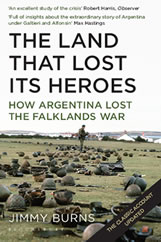Nothing like having a belated ten day holiday in Sitges to meditate on the affairs of FC Barcelona. This is after all the town/village, just down the coast from the Catalan capital, where much of the creative talent behind the region’s great fortunes and modernism was developed. They say that long after los indianos –those who traded successfuly and built their palaces-painters and poets used to drink champagne watching the sunset and the sunrise.
Here too resided once the likes of Bobby Robson and Jose Mourinho and Louis Van Gal and several Barca players courtesy of the one-time president and construction magnate Jose Luis Nunez whose apartment blocks still occupy prime territory near the golf course of Terramar and the Atlantida night club where Maradona enjoyed many a wild night.
I love to spend time in Sitges and I am not gay. It’s stilll a place where, between walks along the promenade and swims in the sea- people like to eat well, drown sundowners, and pick up on good information. A well informed local estate agent tells me that these days it’s unusual to have flats or houses occupied by Barca players or their coaches. The club under Guardiola likes to keep things closer to home, under tighter control. The last of the wild ones was Ronaldinho.
These days it’s not the nocturnal excesses of players the club has to worry about. It’s how to keep them motivated and fit enough to pull off another season of trophies amidst a fitness programme that is beginning to cripple individual stars with the regularity of Afghan mines blowing up NATO soldiers. And then there is a power struggle between two ambitious, vane, and rather irreconciable former running mates that threatens to develop into football’s equivalent of a civil war.
Many a thinker, not least Miguel Unamuno, has meditated on the belief that history is made by a few powerful men, while a majority just sit back and watch or tear themselves apart following one leader or the other. The duel between Barca president and former president, Sandro Rosell and Joan Laporta respectively, for the hearts and minds of cules is turning ugly and potentially destructive. It cries out for mediation, but then one fears this might just simply end up burying the truth.
Rosell insists that Laporta must answer through the courts for his alleged financial mismanagement of the club and other personal eccentricities while at the helm. To do so he has sought and obtained the backing of the compromisarios, the so called members’ representatives- a very small percentage of the total membership, and some hand-picked. It is this ‘popular’ assembly (sic) that has just endorsed the club’s sponsorship deal with Qatar (see my earlier blogs on this issue), and the no less controversial decision to allow several thousand previously banned young fans into the Nou Camp, including members of the infamous boixos nois, on the condition that they are first vetted by the police- an additional cost to the already financially strapped socio.
Laporta , who expelled the boixos nois after receiving death threats from some of its members, for his part has confirmed himself as something of a political animal, pressing the case for Catalan independence in the regional parliament, while pointing a finger at the alleged dark forces of conspirators which he claims Rosell and his friends have mounted against the former ruling junta. A lawyer, Laporta is also threatening to counter-claim through the courts.
Catalan politics can be complex, but you could be forgiven if you found the current politics of Barca particularly confusing. So who is the real democrat : Rosell- who the Economist magazine this week claims has been involved in some questionable deals in Brazil – or Laporta whose legal firm stands accused of buttering up to a corrupt central asian despot , rather more corrupt tham Qatar’s emir?
Democracy is actually sadly lacking in one important respect. No Catalan newspaper- and I include here the popular tabloid Mundo Deportivo and the serious broadsheet La Vanguardia which together make up the bulk of Barca readers , has made any effort to contribute to enlightening ordinary mortals with a piece of decent investigative journalism into any of the alleged claims and counter claims-and there eare many more potential skeletons on both sides than the ones I have mentioned here. In Spain, only El Pais which in my view provides some of the most incisive and balanced reporting on the football of Real Madrid and Barca-has had a shot at it, questioning the legitimacy of the presidents of both clubs.
Noone meanwhile has had a real try at explaining why Barca is suffering so many injuries at such an early stage in the season, and what might be behind the longer-term vulnerabilities of key players like Pujol. Could it be that the training programme is wrong? If so why? Are some injuries worse than we are being told and if so why are we being kept in the dark? Did Wenger know something about Cesc’s long-term fitness that Guardiola didn’t?
Perhaps the reason not many people are asking these questions, let alone providing answers, is that Barca remains up there as the greatest team in the world,with enough fit players-Messi is still up and running- still delivering a recipe of creative team work and magicial goals and victories that are a joy to watch. But other teams, not just Manchester United, are learning to play like Barca, and the original brand is likely to face much tougher competition as the weeks go on and other players fall injured. Perhaps only when Barca start really losing will we get some real answers. But democracy, this ain’t.


Comments